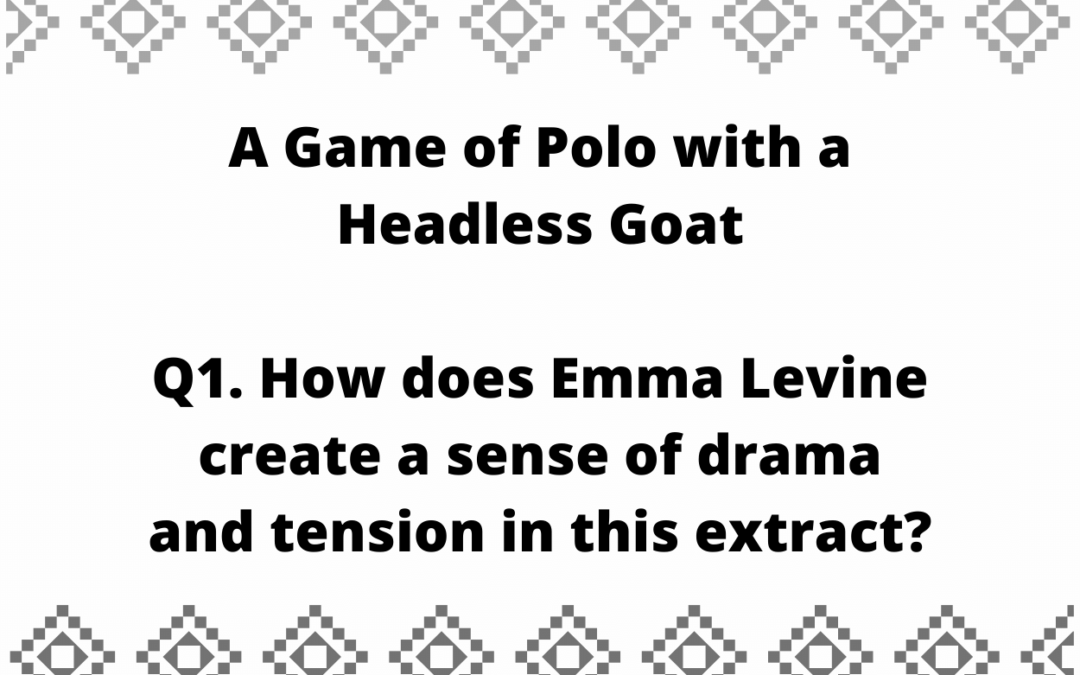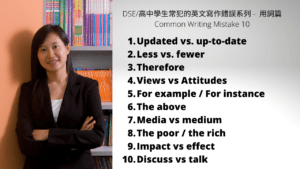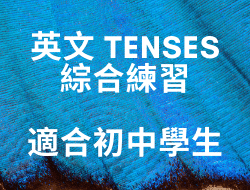Edexcel English IGCSE: A Game of Polo with a Headless Goat by Emma Levine
Q1. How does Emma Levine create a sense of drama and tension in this A Game of Polo with a Headless Goat?
Edexcel English IGCSE Model Essay by an Expert
This passage begins with a build-up of tension, as Levine waits for the race. Then, in a burst of activity, the drama of the event itself is described. The end of the passage returns to a state of tension.
At the beginning of the passage, excitement for the race is followed by concern that it may not happen. The opening paragraph builds optimism and excitement amongst Levine and her guides. The guides “loved the idea” of joining the race, and said it was “no problem” to get involved. This builds the expectation that something thrilling will happen soon. Because of this expectation, even more tension is created when the race doesn’t start immediately. The tone shifts from enthusiastic to hopeless. Levine hyperbolically states that they “waited for eternity”, which is in stark contrast to the energy of the previous sentence, in which the guides were “fired up with enthusiasm”. There is tension between Levine’s hopelessness as she begins to “lose faith” in the race, and the guides, who “remained confident”. These two views are contrasted in a simple, compound sentence; the reader is excited to find out who will be right.
Following the slow pace of this build-up, the race bursts onto the scene with dramatic intensity. The donkeys appear in a “cloud of fumes and dust”, which creates a visually dramatic scene; the dust-cloud makes it seem as though they are moving very fast, and also creates an air of mystery, since they are partially obscured from sight. Levine also creates a sense of drama through her portrayal of the noisiness of the scene. Onomatopoeic vocabulary is employed to capture the overwhelming nature of the event: “roaring”, “revved”, “tooting”, “ringing”, “cheered and shouted”. There is also drama in the dangerous nature of the driving. An extended metaphor of an animalistic hunt is used to create an atmosphere of wild abandon: “quick reflexes” and “effective horn”, for example.
At the end of the passage, an atmosphere of tension returns. The excitement ends with the short, blunt sentence: “The race was over.” However, tension is created when the next paragraph begins with a connective, undermining the reader’s expectations that the excitement is finished. The crowd becomes irate, and the tense danger of this crowd is captured in the triple structure describing their actions: “Voices were raised, fists were out and tempers rising.” The use of the passive voice in this dramatic statement creates the sense of a frightening mob of people. Levine and the guides decide to leave as a result of this building tension.
Levine’s description is full of tension and drama. The excitement of the race is heightened by the tension before it, and this drama contributes to the tense atmosphere that follows.



